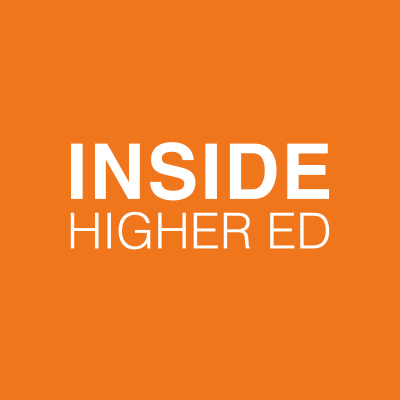
Education Dive
March 22, 2019 Student Success
James Jacobs, president emeritus of Macomb Community College outlines the ways in which community colleges must change to help their students transfer successfully into the workforce. STEM programs in particular assist students transferring in to four-year colleges. Workforce training and apprenticeship programs help students who intend on obtaining full time employement upon graduation.

NPR
March 13, 2019 Enrollment Management Trends, Research
The current average six-year completion rate for post-secondary institutions is 58.3%. While the numbers are up overall, they are far too low and can vary widely depending on the type of school. As the student body continues to diversify, colleges and universities need to examine how to best adapt to the changing needs of those enrolled.

Education Dive
March 12, 2019 Student Success, Value and Affordability
Work-study programs can both improve career readiness and retention on college campuses. A new report from NASPA explores how colleges and universities can design and administer on-campus student employment as a high-impact practice.

The Education Trust
March 06, 2019 Enrollment Management Trends, Student Success
The vast majority of colleges and universities across the United States do not have a Black student population that reflects the state’s demographics. Less than half of Americans (43 percent), hold a college degree, and less than one-third of the Black population holds a college degree. A recent report published by Education Trust provides actionable questions for leaders in states to ask as part of a statewide review of educational equity.

Education Dive
March 04, 2019 Student Success
Studies have shown that less than half of college students use their college’s career services. To make these career services more accessible and applicable to students, colleges are beginning to change the way they present career preparedness. Initiatives such as exposing students to careers as early as freshman year, and setting up required milestones for students to meet are beginning to be implemented.

Education Dive
February 26, 2019 Enrollment Management Trends, Value and Affordability
Despite state funding for public two- and four-year colleges decreasing in recent years, only 29% of U.S. adults correctly recognized this trend. Across the country, colleges are trying to make up the deficits by increasing tuition, retaining less faculty, removing courses, and even shutting down campuses. If voters do not see this as a prevalent issue, it will be difficult to make the case for increased state investment.

Inside Higher Ed
February 25, 2019 Admissions, Enrollment Management Trends
As racial and ethnic gaps are prevalent in student debt and access to higher education, Senators are looking for ways to address. New America proposed colleges with a preference for alumni children, and/or those that have early-decision programs lose access to federal aid programs. In addition, they proposed requiring universities seeking federal research grants to replace admissions systems with ones in which a lottery plays a prominent role.

National Association of Student Financial Aid Administrators
February 19, 2019 Student Success, Value and Affordability
Black students struggle disproportionately compared to any other racial groups when it comes to student loan debt. On average, Black students finish college with more debt than their white counterparts. Much of this can be attributed to less financial and academic resources and lower earnings post-graduation.

Chronicle of Higher Education
February 13, 2019 Enrollment Management Trends, Value and Affordability
Instagram users with large followings attract brands who wish to promote their products or services to their audiences. A select few influencers have partnered with U.S. Department of Education to post about the importance of completing the FAFSA with the hashtag #ButFirstFAFSA. Influencers are sharing their inspiring stories about attending college and the benefits of federal aid.

Education Dive
February 13, 2019 Enrollment Management Trends, Research
Accepted methods of measuring whether colleges and universities are providing access to low-income students don’t consider the unequal income distributions among the regions from which the institutions traditionally draw. Institutions in the tri-state area, for example, draw from in-state pools of students with higher income distributions compared to those in other areas of the country.